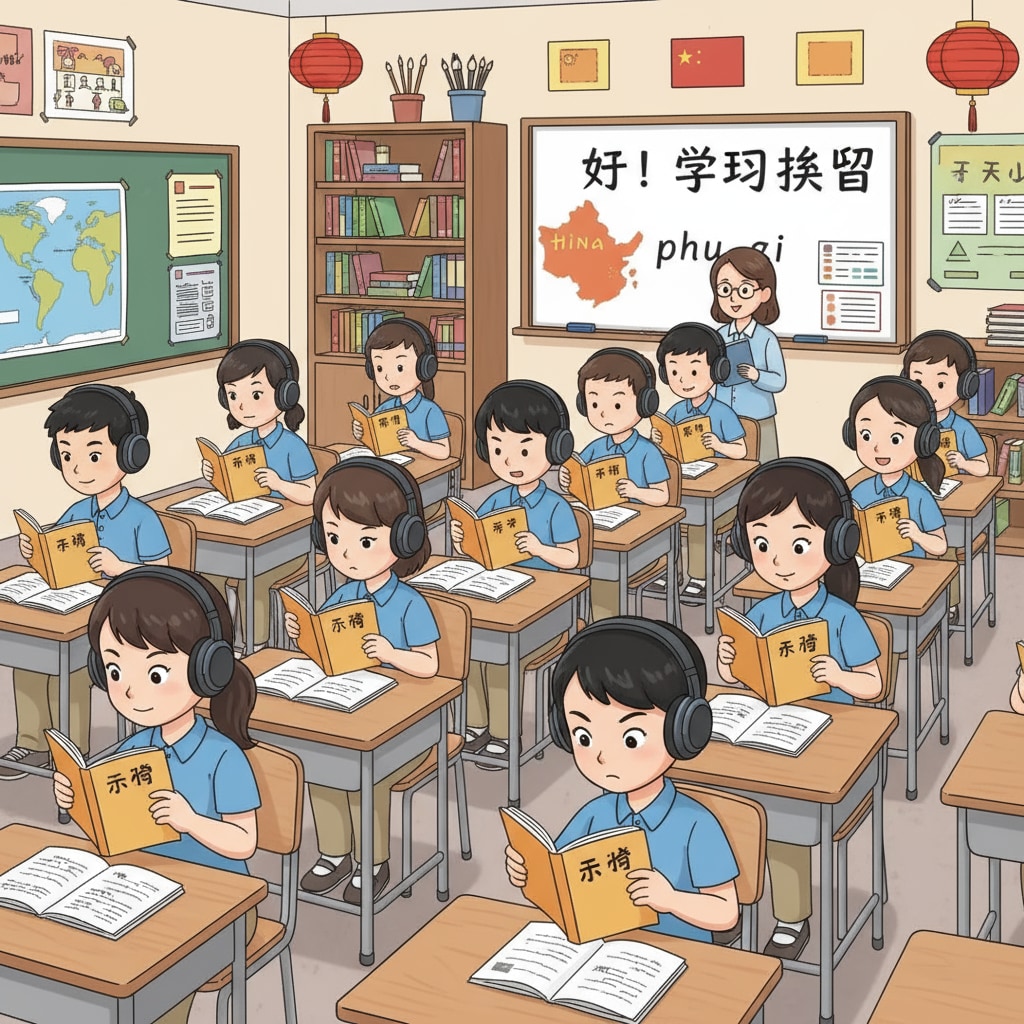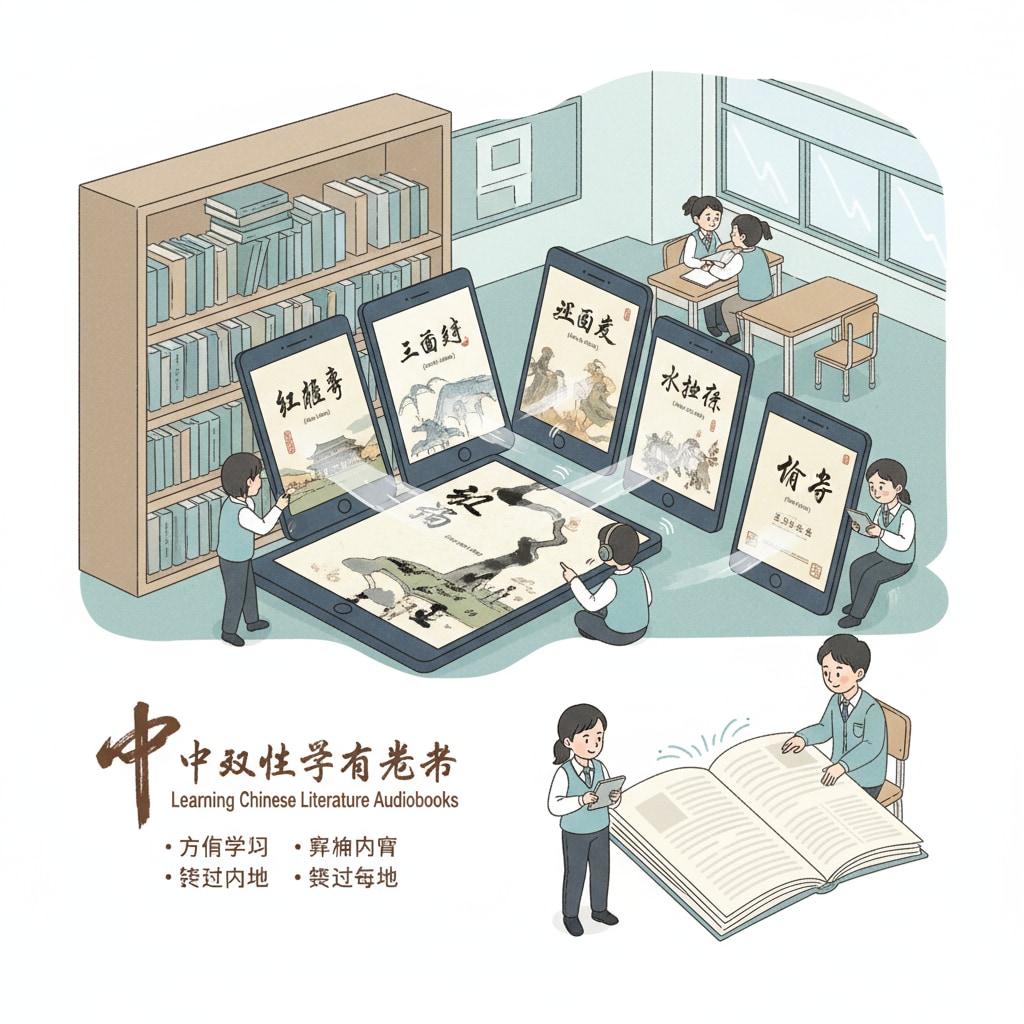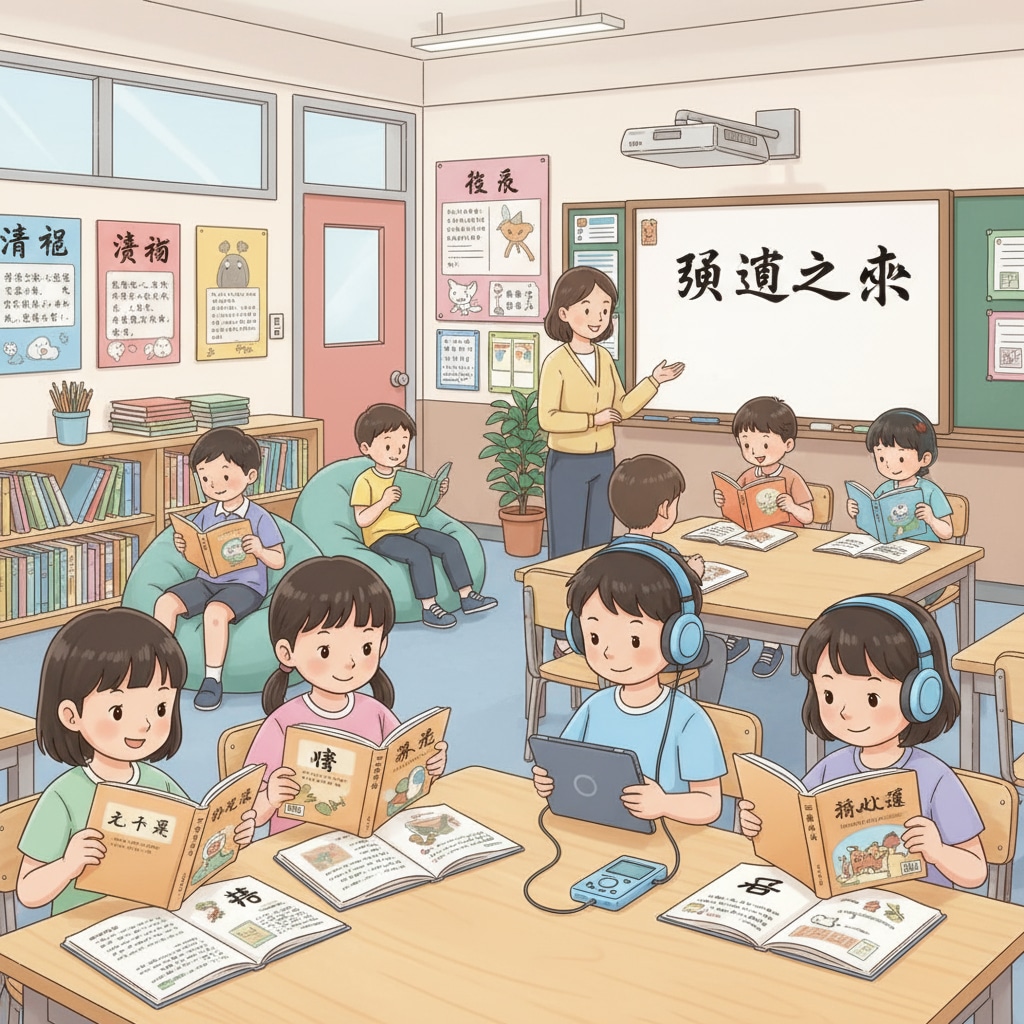In recent times, the integration of audiobooks into the 8th-grade Chinese curriculum, allowing students to use them as a substitute for traditional reading, has sparked a lively debate. This has drawn our attention to the broader discussion of the appropriateness of audiobooks as a reading alternative in middle school Chinese education, a topic closely intertwined with students’ reading abilities and the overall landscape of Chinese language education.

As technology continues to evolve, audiobooks have become increasingly accessible, presenting both opportunities and challenges in the context of education.
The Rise of Audiobooks in Education
Audiobooks have witnessed a significant surge in popularity in recent years. In the realm of education, they offer several advantages. For example, they provide a convenient option for students with busy schedules. A student who may not have the time to sit down and read a physical book can listen to an audiobook while commuting or doing household chores. This flexibility allows for more efficient use of time. Additionally, audiobooks can be beneficial for students with learning difficulties, such as dyslexia. According to Learning Disabilities Association, listening to a well-narrated audiobook can help these students better understand the text.

Impact on Reading Abilities
However, the use of audiobooks also raises concerns about its impact on students’ reading abilities. Reading is a complex skill that involves multiple processes, such as decoding words, understanding context, and making inferences. When students listen to an audiobook, they miss out on the visual process of reading. This can potentially affect their word recognition and spelling skills. Moreover, the pace of an audiobook is set by the narrator, leaving students with less opportunity to control the speed of reading and engage in deeper analysis. As stated in research by American Psychological Association, reading a physical book often leads to better comprehension and retention compared to listening to an audiobook.
On the other hand, audiobooks can enhance listening skills, which are an important part of language proficiency. By listening to well-spoken narrators, students can improve their pronunciation and intonation. They can also learn to follow complex narratives and understand different accents.
Readability guidance: The rise of audiobooks in education brings both benefits and drawbacks. The advantages like convenience and assistance for students with learning difficulties are significant. However, the potential negative impact on reading abilities, such as word recognition and spelling, cannot be ignored. We need to carefully consider these aspects to make an informed decision about the role of audiobooks in middle school Chinese education.
Finding the Right Balance
In middle school Chinese education, it is crucial to find a balance between the convenience of audiobooks and the development of students’ reading abilities. Teachers can use audiobooks as a supplementary resource rather than a complete replacement for traditional reading. For instance, after students have read a text independently, they can listen to the audiobook version to reinforce their understanding. This way, they can benefit from both the visual and auditory aspects of the text. Additionally, teachers can design activities that encourage students to engage more deeply with the audiobook, such as having discussions about the plot, characters, or themes.
Parents also play a vital role in this process. They can encourage their children to read physical books regularly while also allowing them to enjoy the convenience of audiobooks. By setting a good example of reading and providing a rich reading environment at home, parents can help their children develop strong reading habits.
In conclusion, while audiobooks offer a convenient and valuable alternative in middle school Chinese education, we must be cautious about their potential impact on students’ reading abilities. By finding the right balance between the two, we can ensure that students receive a well-rounded education that nurtures both their language skills and love for reading.



